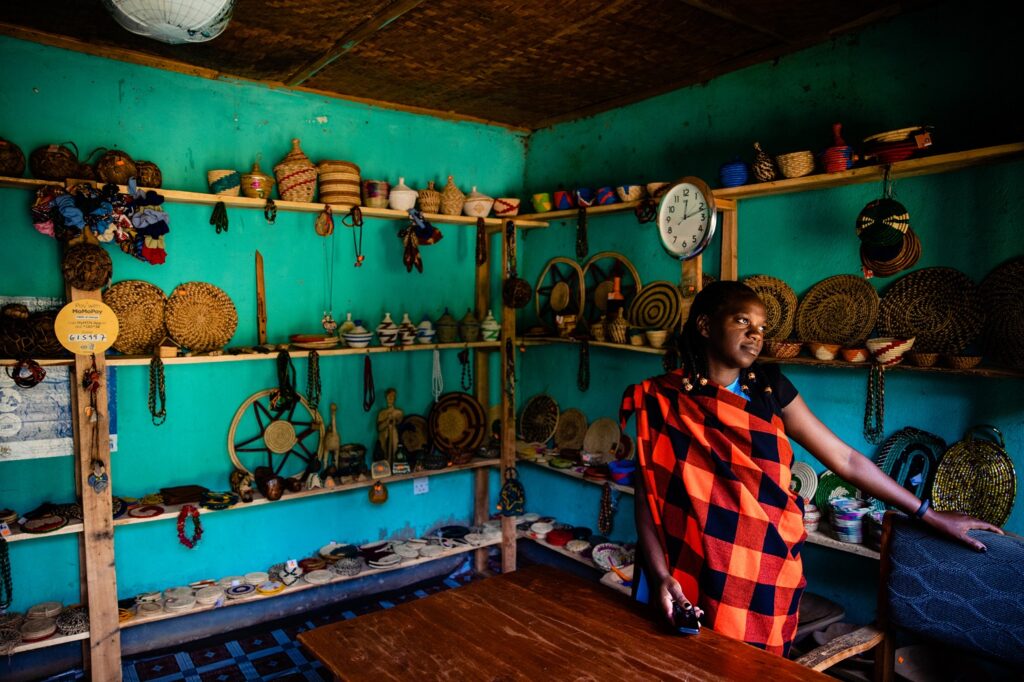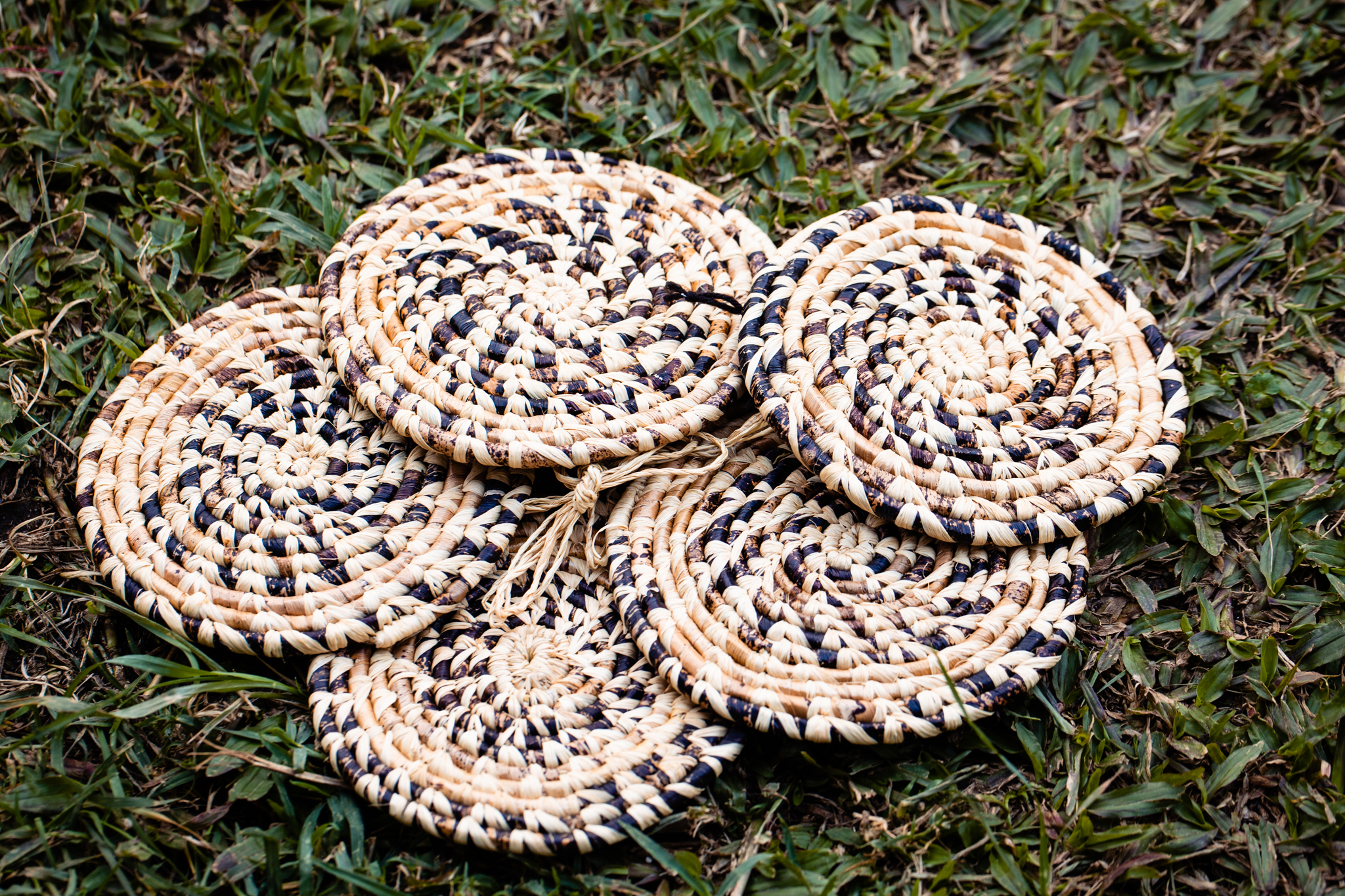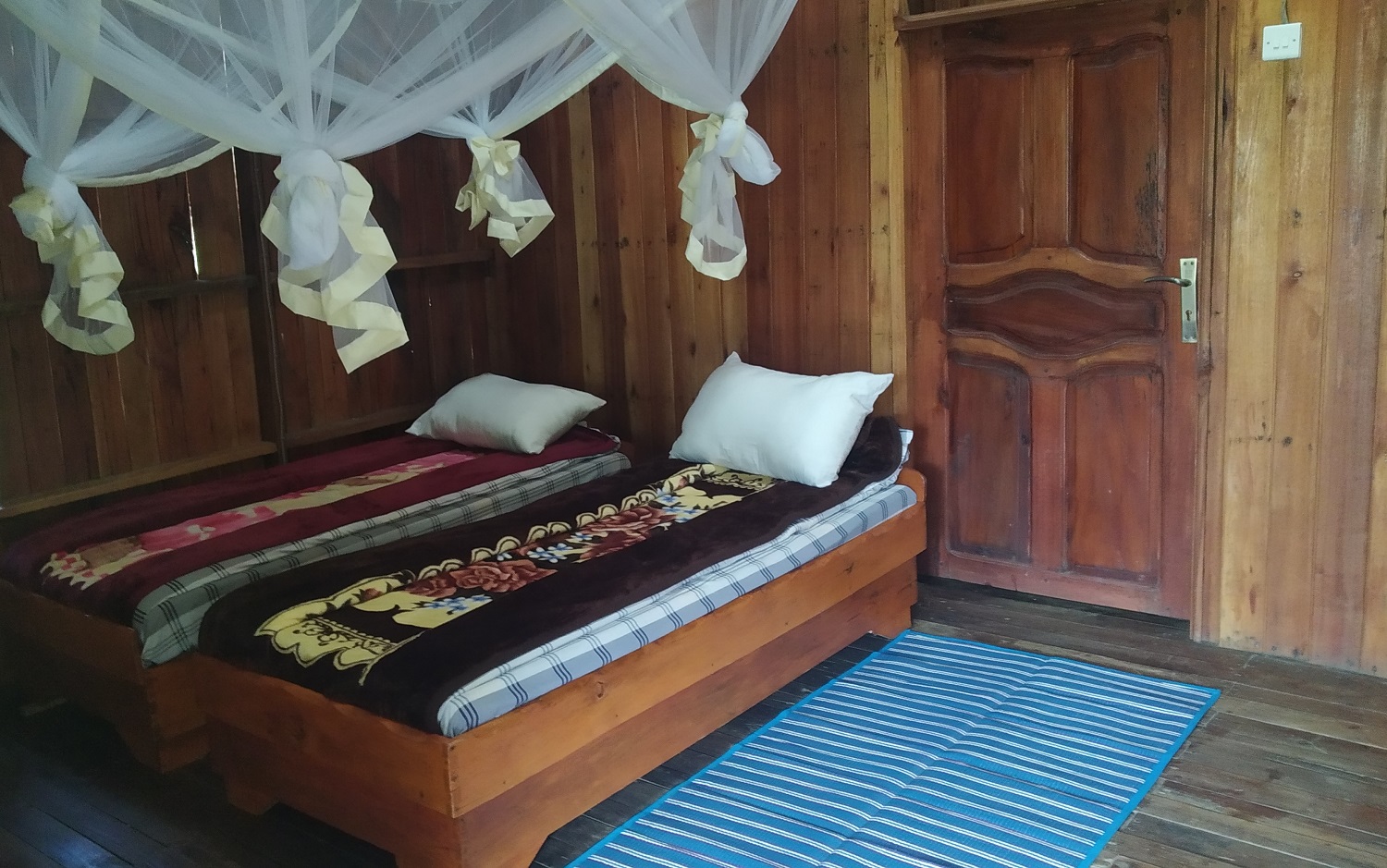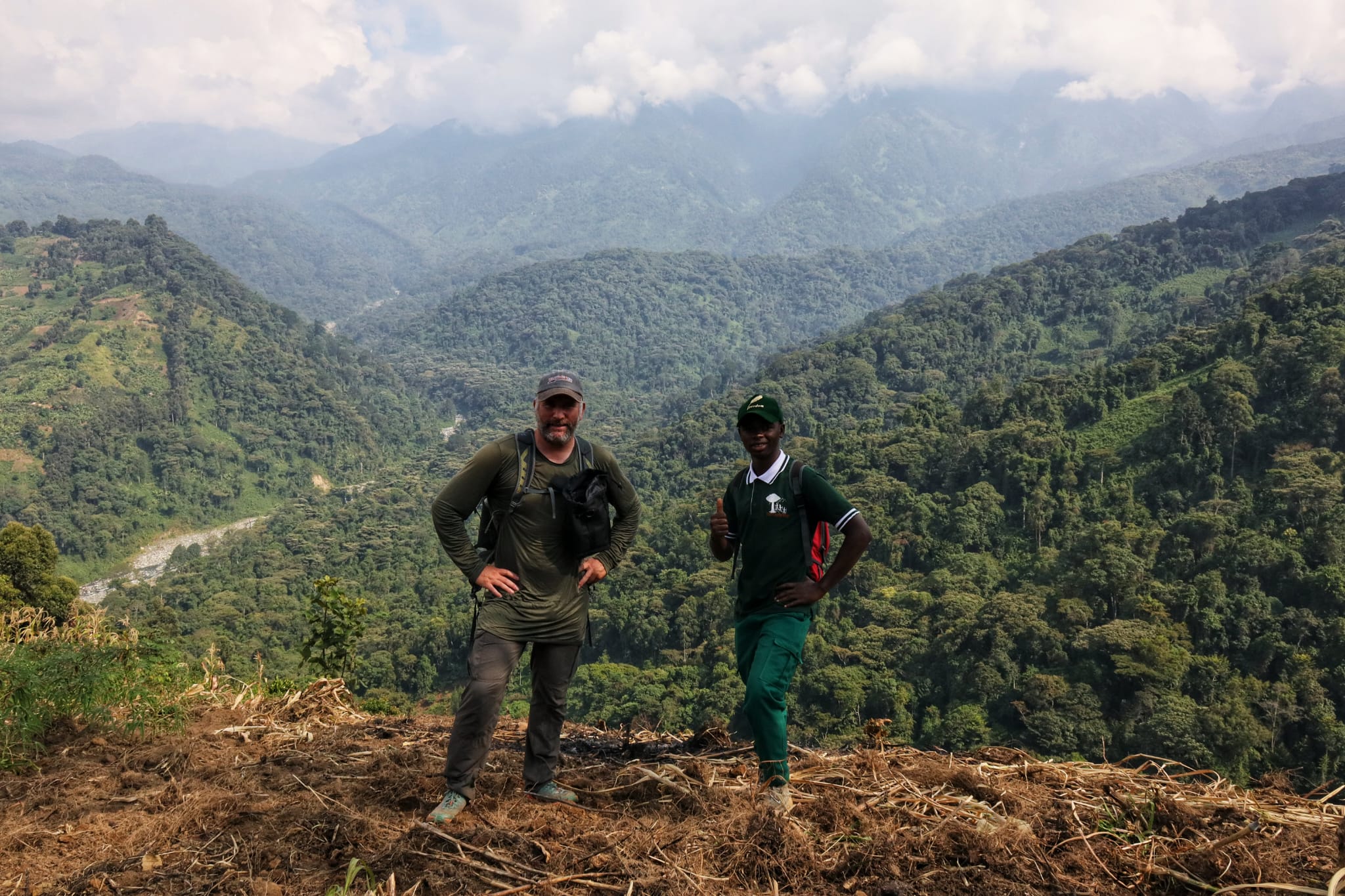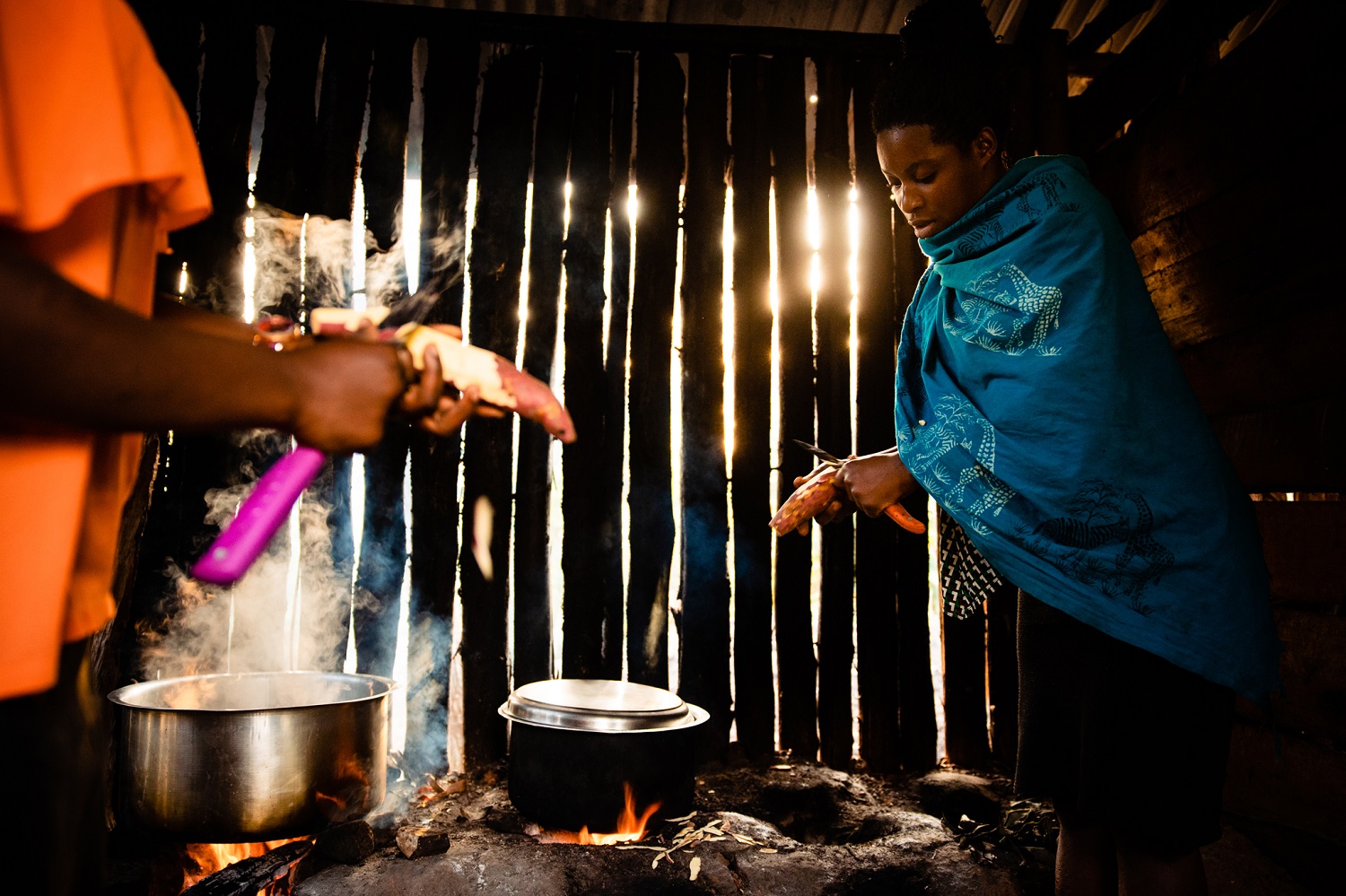If you will be visiting Queen Elizabeth, Kibale forest and or Rwenzori Mountain National Parks, Ruboni community cultural experience is worth adding on your activity list. In 2-3 hours, this community trail will show you the full life of the Bakonzo tribe.
The Bakonzo people belong to an indigenous tribe that lives in the Rwenzori foothills. It is one of the smallest tribes in Uganda with majority of them living in Congo, on the other side of the Rwenzori Mountains. It is one of the most gifted and talented making them able to tame the steep hills and turn them into homes.
Due to modernity, their culture seems to be fading away. However, this community trail takes you to the unique locations within the rustic villages where you will discover the local life as it has been lived hundreds of years ago.
Parts of the tour
The tour is on foot through a rural setting. During the walk, you will be observing the culture, livelihoods and lifestyles. Along the three hours journey you will visit five selected homesteads in Ruboni village that will give you an opportunity to participate in the true culture of this tribe. Each of the homes welcomes you to share their local life story when you see how they live. You will also have plenty of opportunities to participate in these activities like any of the other family members. The homesteads visited on this trail include;
- The traditional story teller,
- The black smith,
- the traditional healer or fortune teller,
- The basked weaver,
- The local farmer and a mini coffee experience
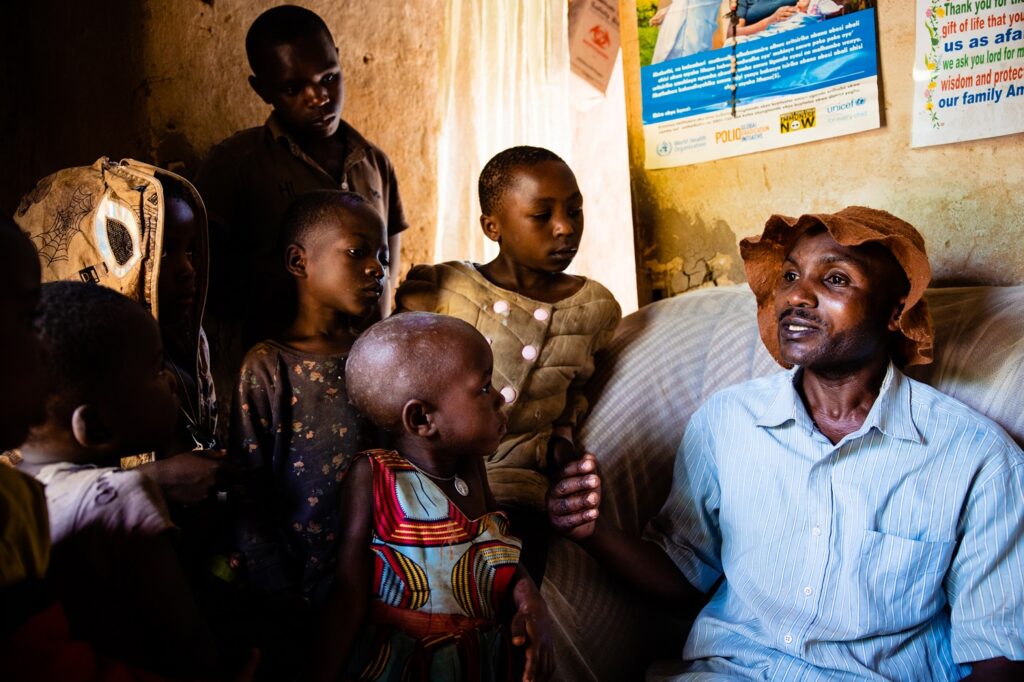
The traditional story tellers’ home:
At the home on the edges of Mubuku valley, you will meet Mr. Mateke and share some of the key traditional stories of Bakonzo life. The home is parched on the hillside giving an opportunity to take some good views of the valley. Listening to this story is an opportunity to learn beyond what you see in the village. You will learn how the traditional knowledge, skills and power were passed on the younger generations in the Bakonzo family. The stories include marriage moments, child naming moments, crop farming and harvesting processes, food preparation processes or a whole lot of them. Oral history is still treasured among the Bakonzo culture. The elders seat with the young generation to share these stories as a tool of education and empowerment.
The black smith making local tools:
After crossing river Mubuku, you will reach a beautiful setting by the riverside with the black smith spot where he shapes the useful household tools out of old sheets of metals. You will see how this is done using a handful of local tools. While here, you will enjoy a beautiful rocky natural background with water rapids and the cold breeze. Under a shade made of banana leaves you will see a sleek fire being blown by this small but efficient traditional fire blowing tool made out of special wood, animal skin and two hand sticks. This apparatus is operated by pushing two parallel sticks tied to the skin over the wooden fire tool with a hole leading the air to the fire through one end.
The local families’ would hardly afford a knife in their kitchen if this man gave up his job. This small tool workshop is so important to the local families for the provision of knives, pangars, slashers, hammers, traditional music bells crafts making tools, spears and others. The local guide will translate to English the presentation of the black smith made in the local dialect. You will then be invited to participate in all the work of making tools, after which you will be able to buy some tools from a display.
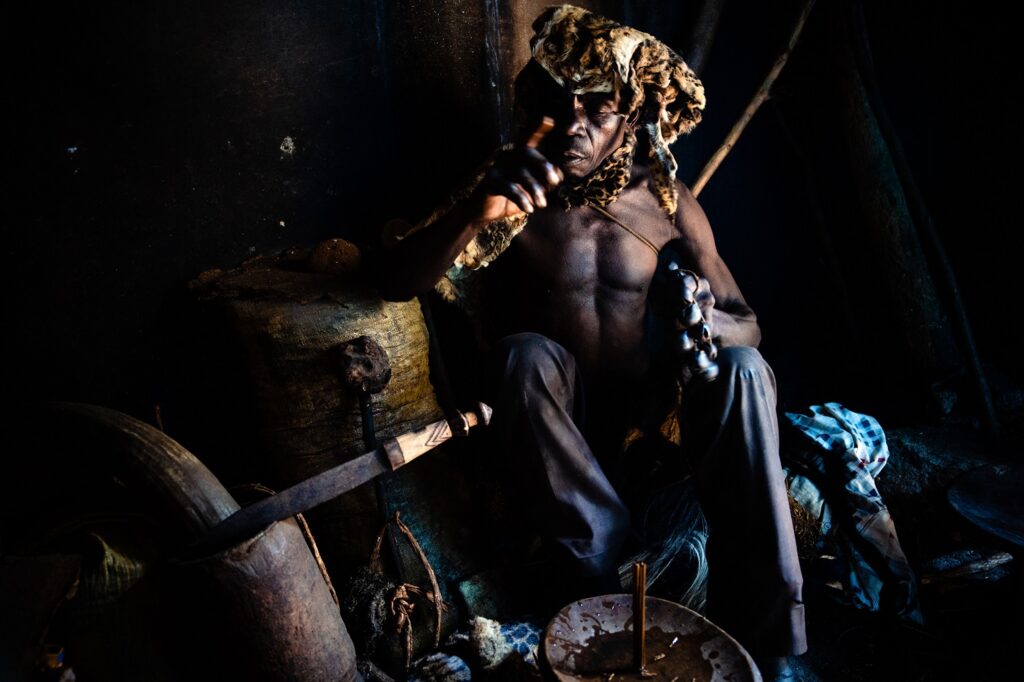
The traditional healers’ home:
In this village, modern medicine has not completely wiped out the use of culture to heal sicknesses. You will be impressed by learning the healing tricks and remedies of this local tribe. Dressed in skins, the traditional healer will show you how he treats local sicknesses to earn his living. The two pieces of sticks, a traditional stool and his pair of hands are all he uses to communicate the fate of his patients. The traditional healer will show you how he addresses home conflicts, witchcraft, misfortunes and other simple emotion related sicknesses using his healing power and concoctions. At the end of every treatment process patients are given concoctions that they use to regain their normal desired state of health. During the visit, you will view and see how the traditional healer works his trades through his life. If you’re brave and willing, the traditional healer may give you a tip of your fate on demand
The basket weavers’ home:
During the visit to this home, you will be taken through the process of making certain handicrafts using local materials from the grasses, crop residues or recycled items. Spend a few minutes observing how the crafts are made. Take an opportunity to make your own or contribute to the already started piece of craft. Besides, the activity is done in the local home setting, giving you a feeling of living like a local in this African village.
Craft production is an ancient skill in this rural mountain culture. After the farm work, family members stay at home together. During this time, every member, especially the women are producing a series of different handicrafts while teaching the young children how to do this trade. At present, women still produce handicrafts for domestic use to save on the money spent to buy modern utensils but also to generate some income when they sale surplus crafts in the market and to the tourists.
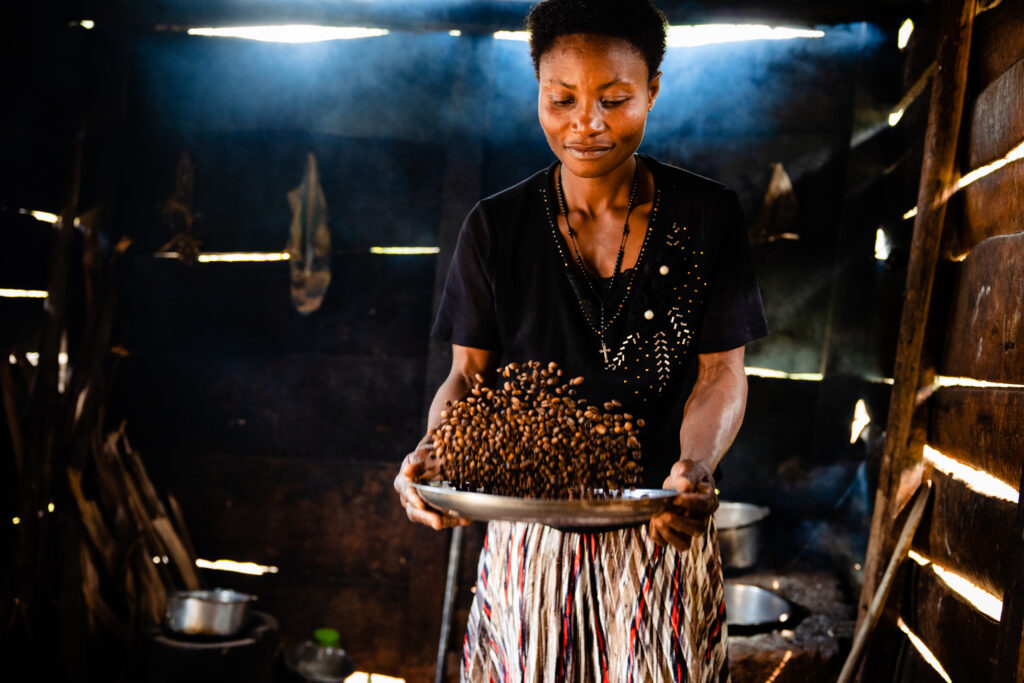
The local farmer and coffee roasting experience:
On arrival at this home, you will be taken on the tour through the farm, to learn the processes of how everything is grown. You will then explore the coffee farming and production. The coffee tour will cover the process of planting, tending, and harvesting, processing and roasting. You will be participating in all the stages of coffee farming until you make your own coffee powder. Sitting in the local kitchen with the household gives you an opportunity of understanding the real life in rural Africa. At will, you will be able to take some of the coffee that you have made with your own hands, since the family is willing to pack this coffee for you at an affordable price.
It is a local family with a home located on the farm; the crops grown include vanilla, bananas, coffee, serials and other vegetables. The wealth of fertile soil on this farm will almost grow everything put in the ground. The household collects most of their food needs from the garden and the surplus is sold for income.
The the village trail is culminated by going to the crafts shop to buy some of the local crafts souvenirs This is a moment to support the local community buy buying some of the crafts produced by the local families. You may also choose to attend the traditional festival in the late afternoon.
